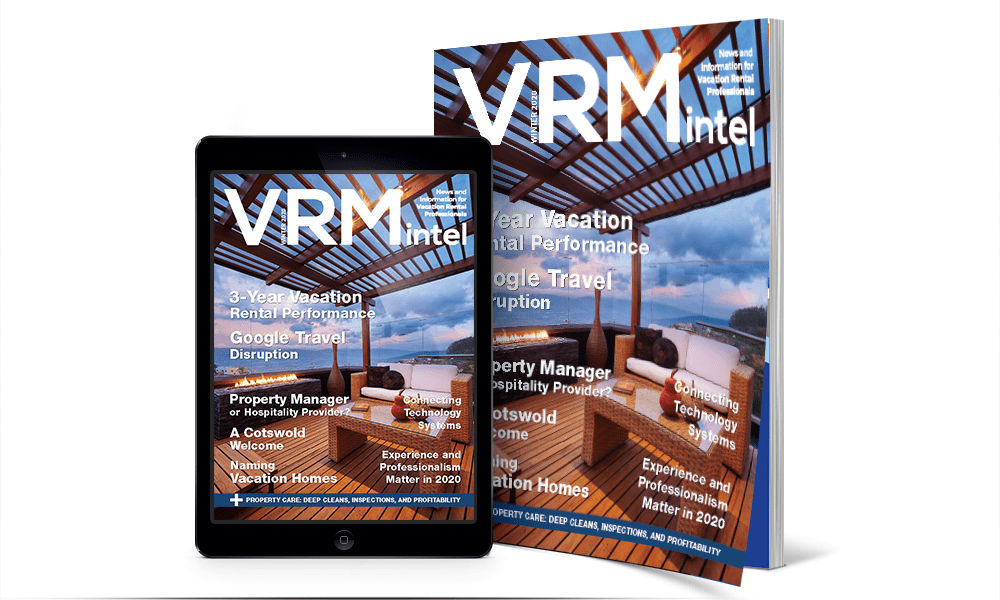The Winter 2020 issue of VRM Intel Magazine is here. From the top of the marketing funnel to the gunk of deep cleans, this winter issue covers professionalism, changes at Google, true hospitality, performance data, technology connectivity, property care, industry context, and much more.
The term vacation rental has taken some hits over the past few years—but even more so in 2019.
Although it’s probably unfair, I still blame Phocuswright for introducing the terms alternative accommodations and private accommodations in its research, lumping new rental segments (i.e., shared housing and urban rentals) with traditional vacation rentals under one umbrella. But it wasn’t just Phocuswright; consumers did the same thing organically, calling everything an Airbnb. I get it. It is difficult to find an easy way to describe a lodging segment that includes apartments, beach houses, cabins, chalets, condos, townhouses, treehouses, spare bedrooms, and air mattresses. For consumers, telling friends, “I’m staying in an Airbnb,” is much simpler.
But, in 2019, after attending dozens of conferences, viewing over 30 startup pitch decks, talking to investors and analysts, and commiserating with hundreds of property managers, I’m a little peeved and perplexed—particularly about the viewpoints comparing urban short-term rentals and leisure vacation rentals. Over a billion dollars have been invested in the urban short-term rental sector, including $400M in Sonder, $180M in Lyric, $116M in Domio, and $62M in Stay Alfred. Although we see opportunities for the urban segment, we also see the risks. These models execute strategies that include master leases, facilities management, complete furnishings, reliance on distribution, and a volatile regulatory environment. It may be risky, but this urban rental segment is fast-growing and likely to find its way under hotel flags, giving its investors and founders the potential for astronomical exits. With big risk comes big reward.
So why am I peeved? First, the influx of urban rentals has precipitated a contagion of regulatory issues that have spread to leisure destinations. Second, the consistent year-over-year, decade-over-decade growth in the leisure side of the vacation rental industry is being misrepresented as old and fragmented, and in need of a consolidated overhaul. Third, if the considerable risks these newcomers are taking don’t pan out, I’m concerned that the vacation rental industry’s reputation will suffer from guilt by association.
I personally believe that the two segments, urban short-term rentals and leisure vacation rentals, need to be looked at differently in the minds of investors, owners, guests, and municipalities, as well as in the media. As a result, at VRM Intel, we have made a decision to primarily focus on leisure vacation rentals and have created new events and initiatives to improve the narrative about our industry. For example, we are launching the Second Home Investment and Rental Show (page 53) and are creating a widespread PR initiative (page 104).
In addition, this issue is filled with information supporting vacation rental managers with performance data and articles about the importance of professionalism, the evolution of property management companies into hospitality companies, strategies to address changes at Google, ways to improve site conversion, and the improvement of call center performance. In addition, we address deep cleans, inspections, and housekeeping profitability.
I hope you find this issue helpful for your team and your company. I strongly believe this new decade will be game-changing for the professionally managed vacation rental industry, and I am grateful to each of you for allowing me the opportunity to contribute to and chronicle its success.


